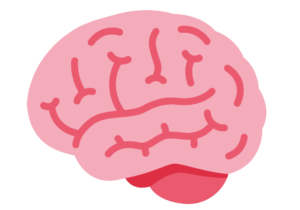There are symptoms of MSA that mimic Parkinson’s disease, including stiffness and rigid muscles, tremors, slow movement, balance issues, trouble walking, and dystonia. These are especially prevalent in MSA-predominant Parkinsonism (MSA-P), which is the more common type of MSA.
Non-pharmacologic treatment of Parkinson-like symptoms of MSA include: Non-pharmacologic treatment of Parkinson-like symptoms of MSA include:
- A regular schedule of physical and occupational therapies can help to control the parkinsonian symptoms of MSA. These can help to maintain balance and flexibility as the disease progresses and can prevent falls and additional injury. Research has shown that inpatient, combined with at-home, physical therapy improves gait disturbances in patients with MSA. Tai-chi has also been shown to have positive effects in patients with Parkinson’s disease, and may have a similar effect on patients with MSA.
- Alexander technique (AT), an educational technique in embodied cognition taught to patients to improve balance, posture and mobility, has demonstrated modest benefits to patients with Parkinson’s in small studies, although recommendations are mixed.
- The most common type of speech therapy for Parkinson’s patients is the Lee Silverman Voice Treatment, in which speech therapists focus patients on speaking loudly as a way to target vocal cords and improve speech fluency. An off shoot of this method can be used to improve motor control in Parkinson’s patients, with a focus on big, expansive movements as a way to control muscles.
- Deep brain stimulation is not an approved therapy for MSA, but there have been anecdotal reports and small case studies reporting the benefits of this treatment. Recently, a review of studies that examined deep brain stimulation concluded that it is not a recommended therapy in MSA.

- Dietary modifications can enhance the effects of certain classes of medication used to treat Parkinson-like symptoms in MSA. In patients taking levodopa, a low-protein diet has been tied to increase effectiveness of the drug and a longer time period where the drug works. Patients on monoamine oxidase inhibitors also have been found to benefit from avoiding foods high in the amino acid tyramine, including fermented foods such as aged cheeses, picked fish, tofu, soy sauce and sauerkraut. Excessive tyramine consumption in patients on these drugs can lead to dangerous spikes in blood pressure.
2. Drugs used for Parkinson’s disease may provide relief of motor symptoms for some MSA patients, though primarily in the earlier stages of the disease. Parkinson’s drugs also can lower blood pressure and may worsen OH symptoms, dizziness, and fainting episodes. Pharmacologic options include:
- Levodopa is a medication that mimics the effect of dopamine in the brain. It was originally used as a treatment for Parkinson’s disease, and a poor response to levodopa therapy is one of the hallmarks of diagnosis of MSA. Only about one-third of MSA patients may experience a benefit, and a response is more likely in the MSA-P subtype than in MSA-C. The benefits of levodopa therapy diminishes over time and has been shown to be useful for MSA-P individuals for about 2 to 3 years. A side effect of levodopa is an abnormal increase in body movement, called dyskinesia, as well as an increase in the symptoms of orthostatic hypotension.
- Other dopamine agonists increase the level of dopamine receptors in the brain, allowing dopamine to have a greater effect. Examples bromocriptine, pramipexole, apomorphine, and ropinirole. Pramipexole has shown promise with some preliminary improvements in Parkinson-like symptoms. Apomorphine helps to treat muscle stiffness and loss of muscle control. As dopamine agonists can exacerbate orthostatic hypotension, they should not be considered first-line drugs in MSA. Potential side effects of this class of medication include daytime sleepiness, dizziness, fainting, nausea, difficulty sleeping, hallucinations, behavioral changes and uncontrolled movements.
- Monoamine oxidase inhibitors block the enzyme monoamine oxidase, which normally breaks down neurotransmitters like dopamine and norepinephrine. As a result, level of these chemicals increase and can alleviate Parkinson-like symptoms. Recently, safinamide has been shown to improve symptoms in MSA patients. This class of medication are commonly used in conjunction with other medications.
- Anticholinergic medications, including trihexyphenidyl and benztropine mesylate, have been used to treat these symptoms in MSA. This class of drugs block the activity of the neurotransmitter acetylcholine, which cause muscles to contract.
- One glutamate antagonist, amantadine, is used to treat Parkinson-like symptoms in MSA. It works by increasing dopamine release and blocking the reuptake of dopamine, leading to mild symptom improvement. Amantadine, which is also an antiviral medication, helps to alleviate tiredness and stiffness in MSA.
- Research has indicated that certain selective serotonin reuptake inhibitors (SSRIs) can help to decrease Parkinson-like symptoms. Specifically, paroxetine has shown benefits to MSA patients.
- Raccagni, C. et al. Physiotherapy improves motor function in patients with the Parkinson variant of multiple system atrophy: A prospective trial. Parkinsonism & Related Disorders. 2019; 67:60 – 65.
- Li F, Harmer P, Fitzgerald K, et al. Tai chi and postural stability in patients with Parkinson’s disease. N Engl J Med2012;366:511–519
- Meissner, Wassilios G. et al.Outcome of deep brain stimulation in slowly progressive multiple system atrophy: A clinico-pathological series and review of the literature. Parkinsonism & Related Disorders. 2016. 24:69 – 75.
- Wang L, Xiong N, Huang J, et al. Protein-Restricted Diets for Ameliorating Motor Fluctuations in Parkinson’s Disease. Front Aging Neurosci. 2017;9:206.
- Constantinescu, R., Richard, I. and Kurlan, R. Levodopa responsiveness in disorders with parkinsonism: A review of the literature. Mov. Disord. 2007. 22: 2141-2148.
- Friess, Elisabeth et al. Paroxetine treatment improves motor symptoms in patients with multiple system atrophy. Parkinsonism & Related Disorders. 2006; 12(7):432 – 437.

